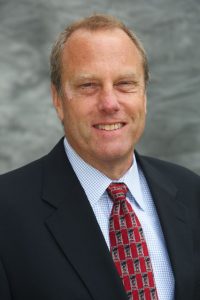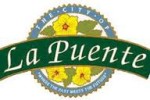David Carmany is the experienced city manager of the City of La Puente, California. He has successfully managed six California cities over a career of 30+ years. He is a lifelong member of the International City and County Management Association (ICMA) and received their 25-year Service Award in 2007.
As La Puente’s City Manager, he assumes full management responsibility for all City services and activities including community resources and public information, community development and code enforcement, public works, parks and recreation, police, fire, finance, human resources, and administration.
 1. What initially prompted you to get involved with local government?
1. What initially prompted you to get involved with local government?
I’m a preacher’s kid who grew up in a steel town: Fontana, California. When I was in elementary school, the Fontana City Manager came to my elementary school and drew the organization chart on the board. He talked about public service and it struck a chord with me. I was hooked. The wide variety of services performed by local government and their importance to the community were something of which I wanted to be a part.
2. Why did you want to become a City Manager?
Being a City Manager is the only career I ever wanted to pursue. When children were talking about becoming baseball players, doctors, police officers, I dreamt of becoming a City Manager.A City Manager is a public servant. We don’t often talk about it, but it is important work. When describing my work and the goal of my profession, I tell people that we are in the business of making people’s lives better – we work to improve the quality of life for the people that we have the privilege of serving. While many adults recall their youth and their hometown with fondness, this really has to do with not only the people they remember but also the atmosphere of their surroundings and their environment. I want people to be proud of their hometown.
3. What is the most important part about your job as a City Manager?
Being a great City Manager requires you to be “all in,” to find a meaningful way to gracefully intertwine your professional and personal life with that of the community you’re serving. I tell people that I do this work for a living, not a hobby; meaning that I am a City Manager at all times and in all situations. City Managers need to lead by example and, in doing so, strive to touch all lives in the community. As my City’s leader, I do my best to communicate with my community, exhibit professionalism and courtesy, be responsive to the needs of the community, and have an entrepreneurial spirit in order to advance the city.
Also significant is the ability to judge talent. I always do my best to select a staff that has knowledge and experience, but I also select people I want to work with and will look forward to working with every day. My team is an extension of me and I am an extension of them. Building a foundation of cohesiveness with people who are willing to serve others makes for a great executive team, and that is essential.
4. Which City project are you most proud of during your years as a City Manager?
I enjoy projects that are both investments in capital and investments in people; I’m proud of several. We built a police station and a sewer plant in Pacifica, park facilities in Agoura Hills, a fire station in Seal Beach, and a library in Manhattan Beach. In my current city, the City of La Puente, we are investing in our people through Project LEAD (Life Experiences About Democracy). Project LEAD is a partnership between the City and the local schools that helps students to become educated, engaged and empowered in the functions of local government.
But my all-time favorite project was in the realm of economic development. While serving as Assistant City Manager in Alhambra, we created a downtown plan and used redevelopment tools to revitalize Main Street and create a line of car dealerships we called the Alhambra Auto Row.
5. What are the greatest challenges facing City Managers in California today?
City Managers must look to the horizon and position the city for long-term success while balancing the growing list of state and federal mandates with the needs and desires of the community. In order to do this, you need to find a way to pay for it all. Sometimes, you have the luxury of a monetarily affluent city. Other times, your city’s affluence is found in its sense of community pride and cultural landscape. As a local government professional, I want to leave a legacy of being the City Manager that did a great job to set-up the City for the next 20 years by utilizing the resources that I had to the fullest.
6. What is your favorite way/place to interact with the residents of La Puente?
I enjoy engaging my residents at every opportunity. This usually happens at the many city-sponsored events we host: everything from the 4th of July fireworks show to the Friday night Farmers’ Market. Since I live in the City I work for, I have the opportunity to meet residents doing the normal things residents do, like shopping or dining out. The conversations are less formal and yield a kind of candidness that you would not get at a Commission or City Council meeting. Residents are often more comfortable talking one-on-one, when there is not an agenda or call for public comment.
7. What is the role of a City Manager in upholding the public’s trust in local government?
The buzzword today when discussing public trust in government is “transparency.” Including the public in meetings and posting salaries of public employees is not enough. Although the existence of transparency laws require a legal obligation to comply, there is also a moral obligation to share with the public about city operations and the decision-making process because, ultimately, this is their investment, their future and their home. It is the role of the City Manager to engage and to seek out engagement with an open mind.
In addition, I am a lifelong member of the International City/County Management Association (ICMA). They have 12 tenets to create excellence in local governance by developing and fostering professional local government management. I refer to those tenets to guide me in my daily decision-making. I try to instill these principles in the entire organization.
8. How are cities shaping the future of California?
Cities are more involved in activities that they hope will improve not only their city, but will influence or improve a larger area such as a region, the state and even the country. They are concerned with their carbon footprint, immigration laws, minimum wage, homelessness, etc. These are things that were not even on the radar 30 years ago. The concern for quality of life for all and the need for social engineering is becoming greater.
9. When you’re not busy working, how do you like to spend your time? What hobbies do you have?
I like to spend time with my family. My children are all college graduates with great jobs. They live in central California and I’m only a few hours away. We try to get together often. I’m also an avid Dodger fan and go to a couple dozen games every year. Woodworking is another activity I enjoy. I have a small workshop but I have built many projects that turned out well.
10. What has been one of your greatest professional challenges, and how did you address it?
I have always handled personnel matters on the basis of merit and I’ve always treated employees in a way which affirms their dignity and worth. A part of the job nobody enjoys is imposing workplace discipline, including termination scenarios – I’ve always believed that employees don’t get fired, they fire themselves.
11. What has your work in public service taught you?
Management is getting work done through others and it’s better to give credit than to take it. If you don’t care who gets the credit, more gets done.
12. What book is on your nightstand right now?
“The No Complaining Rule” by Jon Gordon. It deals with negativity in the workplace and how to avoid it.


